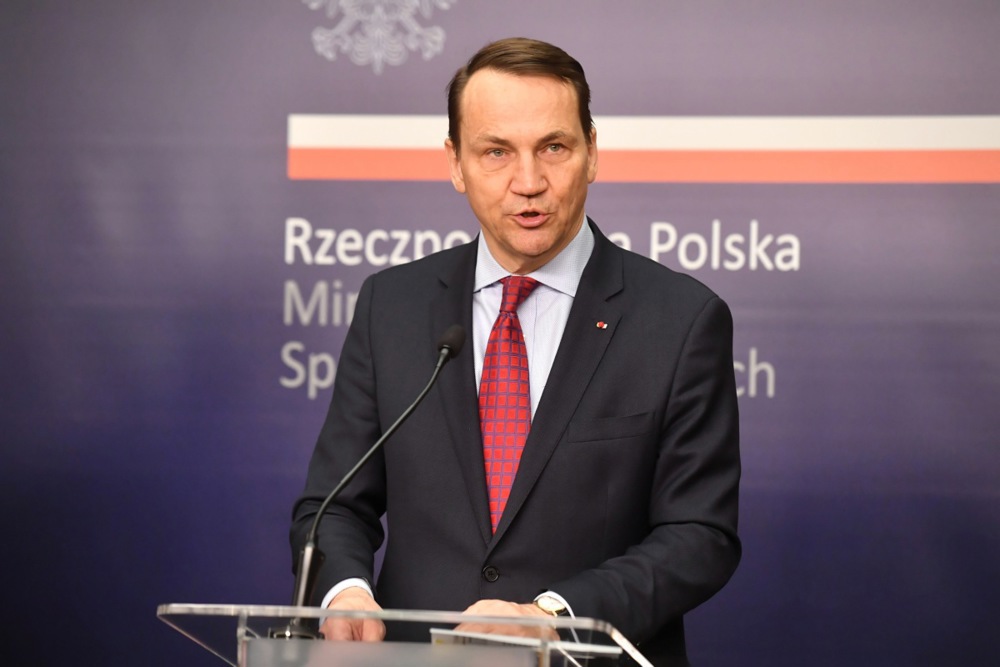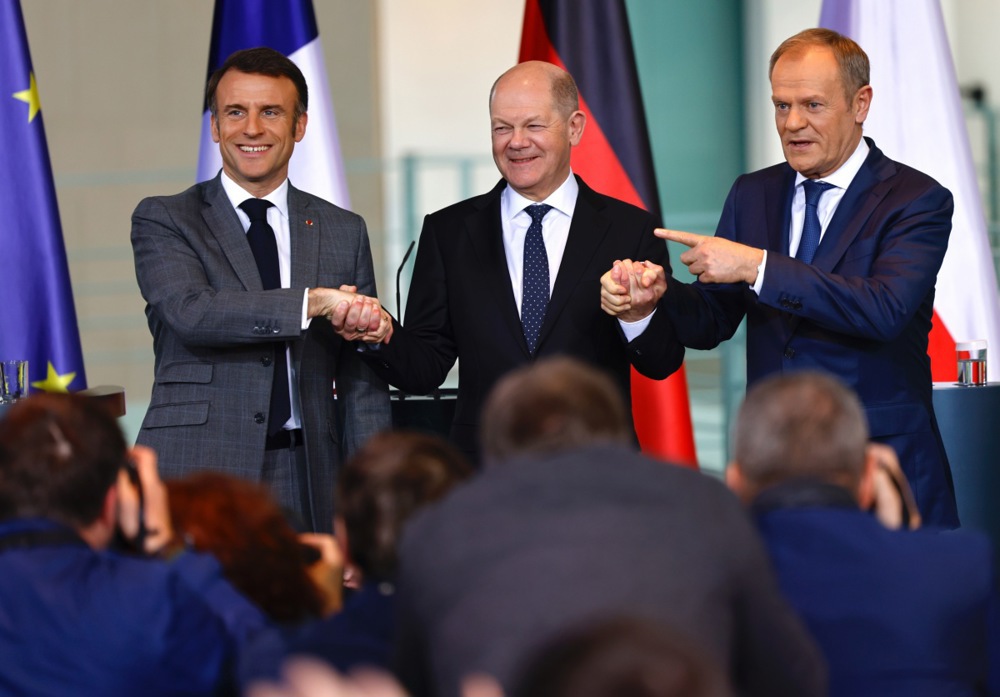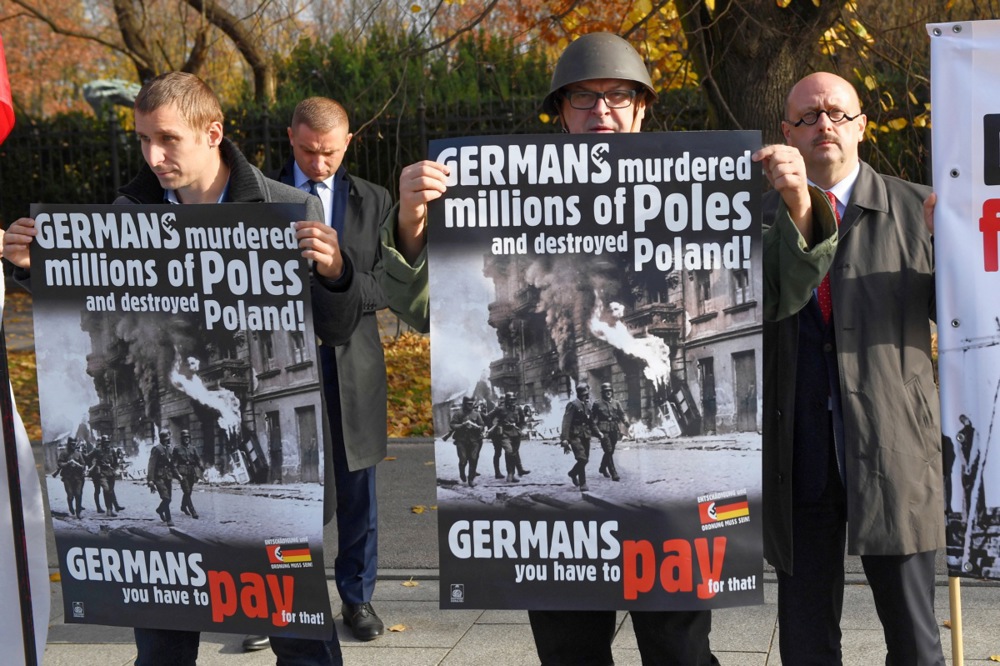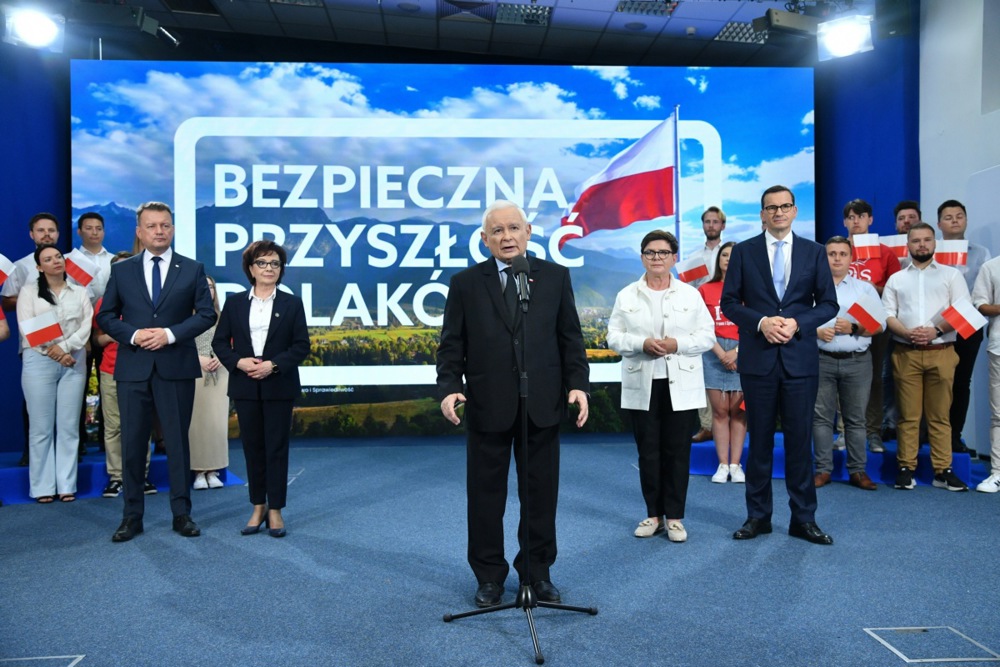Poland has abandoned efforts to seek a new reparations package from Germany over World War II.
The announcement comes after a meeting between the German and Polish Governments in Warsaw, after which both countries vowed to work to better bilateral relations.
After the July 2 talks, authorities confirmed that the reparations claim started by Poland’s previous Law and Justice (PiS) government would not be pursued.
Polish Prime Minister Donald Tusk instead chose to stress Poland’s close ties with its German neighbours.
“[W]e are on the right track to speak confidently again about Polish-German friendship in these very difficult times,” he said, having previously acknowledged that his country does not have a case under international law to pursue its reparations claim against Germany.
“Everyone is looking at our relations with a lot of hope because they can open up many different interesting opportunities for the whole of Europe, Ukraine, Germany, and, above all from my point of view, for Poland.”
Scholz meanwhile said that Germany would try to implement support initiatives for survivors of the Nazi German occupation of Poland during the war.
That would be through the establishment of a “Polish-German House” in Berlin “to commemorate Polish victims of World War II and the Nazi occupation,” which, in his opinion, would constitute “a visible sign against forgetting and a warning for the future”.
“We, the Germans, caused Poland immense suffering during World War II,” said Scholz.
“Germany is aware of its guilt and the tasks resulting from this… Germany will try to provide support to survivors of the occupation.”
Scholz did not detail what form that support would take, who would be eligible, or how much it would involve. Between 1992 and 2005, Germany had already provided compensation to Polish victims of German Nazi crimes through the Foundation for Polish-German Reconciliation.
Claims regarding the alleged maltreatment of a detained priest in Poland have prompted outrage in the country. https://t.co/1IvEKmAeHE
— Brussels Signal (@brusselssignal) July 3, 2024
The so-called intergovernmental discussions, the first since 2018, have been promoted as a “new opening” of relations after tension between the neighbouring states.
PiS had previously pushed Germany to hand over €1.3 trillion in war reparations over losses Poland suffered during the Second World War.
According to the Polish Press Agency (PAP), there are around 40,000 Polish remaining survivors of the Second World War who could benefit from any additional German support.
“We will not be satisfied with any scraps, any attempts to cover up this topic with some small amounts or small actions on the part of the German Government,” Jacek Sasin, who served as deputy prime minister in the PiS government, said ahead of the bilateral talks.
The party does not seem happy with the Tusk-backed compromise, with Stanisław Żaryn, who also served in the PiS government and is now an advisor to the PiS-aligned President Andrzej Duda, describing the deal as “some scraps.
Żaryn claimed Scholz’s move was intended to “allow him to save face and gain some protection from the Polish Government when it comes to these issues of reparations but it will certainly not be the form of compensation we should expect”.
“Today’s proposal can only arouse a smile of pity,” he said.
Tusk, though, said he was “not disappointed with the gesture of the German Government, because there is no amount of money that would compensate for what happened during World War II”.
“If we hear today that Germany is ready to make a decision to compensate the living victims of the war… then these are steps in the right direction,” he added.
Separately, the Polish Prime Minister welcomed the fact that the German Government recently approved the creation of an institution in Berlin that will commemorate Polish victims of the war.
Scholz also announced that his country would help strengthen Poland’s Eastern border but did not provide details of what these measures would involve.
Poland and Baltic countries call for strengthened EU border with Russia. https://t.co/uYeciPUYt4
— Brussels Signal (@brusselssignal) June 27, 2024





